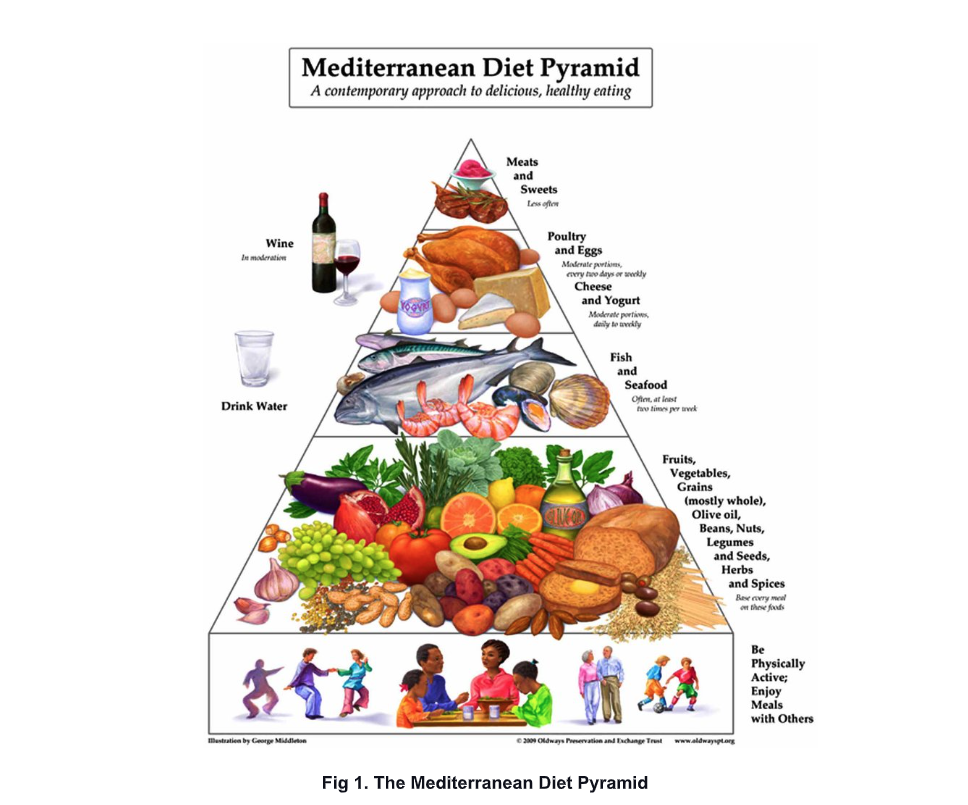Can the Mediterranean Diet Reduce Depression?
Women are nearly twice as likely as men to be diagnosed with chronic pain, inflammation, anxiety and depression than men. According to World Health Organization, Depressive disorders account for close to 41.9% of the disability from neuropsychiatric disorders among women compared to 29.3% among men. The high incidence of this problem is caused by many things; apart from genetics, culture, social-economic, other causes are poor eating habits. Currently, many people are aware of the importance of healthy food. The number of people following plant-based diets is increasing tremendously. In America, vegans increased by 500%, from nearly four million in 2014 to 19.6 million in 2017.
Plant-based diets are growing trends across Western countries. Although plant-based diets are often equated with vegetarian diets, they consist of different eating patterns. The term plant- based is focused on consuming foods primarily from plants (fruit, vegetables, nuts, oil, whole grains, and legumes) but can include small quantities of food of animal origin. A plant-based eater might substitute animal products for vegetable options without the permanent restriction of
animal foods. In addition, some researchers consider that the Mediterranean Diet is one of the healthiest diets in the world.
The Mediterranean diet is a way of eating based on the traditional cuisines of Greece, Italy and other countries that border the Mediterranean Sea. It is a healthy eating custom that emphasizes fruits, vegetables, olive oil consumption, and limited meat-eating. Numerous studies have shown that the Mediterranean diet can promote weight loss, reduce inflammation, and lower the odds of depression, anxiety, and psychological distress. For this reason, the Mediterranean diet is often recommended for those looking to improve their health and protect against chronic disease.
Exactly which foods belong to the Mediterranean diet is controversial, partly because there’s variation between countries. However, in 1993 the Harvard School of Public Health, Oldways Preservation and Exchange Trust, and the European Office of the World Health Organization introduced the Mediterranean Diet Pyramid as a guide to help familiarize people with the most common foods of the region. The pyramid emphasized certain foods based on the dietary traditions of Crete, Greece, and southern Italy during the mid-20th century, which displayed low rates of chronic disease and higher adult life expectancy.

The Mediterranean diet focuses on plant foods more than many other diets. As you can see, the base of the Mediterranean diet pyramid represents foods that you should eat every day and incorporate into every meal. Such as various vegetables, whole grains, olive oil, fruits, beans and other legumes, nuts, herbs, and spices. Meals may include a small portion of fish and seafood at least twice a week; and poultry, eggs, cheese and yogurt in moderation. And don’t
forget to get some water as the primary daily beverage. A moderate intake of wine with meals about one glass a day is allowed because wine contains resveratrol, an antioxidant compound in the skin of grapes that can help restore hormone balance and fertility in women with polycystic ovary syndrome (PCOS).
Remember to involve regular physical activity through enjoyable activities, sharing meals with other people, and minimizing stress levels. Food and sharing meals with others are the oldest ways to connect and build relationships with friends and family. It also often allows for more mindful and even slower eating than eating alone.
Here is an example of a day Mediterranean diet meal plan:
- Breakfast: one pan-fried egg with whole-wheat avocado toast and grilled tomatoes
- Lunch: Caprese zucchini noodles with mozzarella, cherry tomatoes, olive oil, and balsamic vinegar
- Dinner: a tuna salad with greens and olive oil, as well as a fruit salad
Plants, especially dietary fruits and vegetables, are a rich source of antioxidants, commonly phenolics, flavonoids, and proanthocyanidin, proven to reduce inflammation. A study found that Proanthocyanidins also inhibit pro-inflammatory cytokines, such as interleukin-6, tumour necrosis factor-α, and nitric oxide(11). Also, flavonoids, which are widespread in plants, are reported to have sedative, neuroprotective, and antidepressant effects through the antagonism of glutamatergic N-methyl-d-aspartate (NMDA) and GABA pathways.
Apart from being healthier, plant-based products may be suitable for a person with special needs. These chronic diseases revert by reducing animal food and increasing vegetable intake. Finally, protecting the planet means that plants, animals and humans are part of it, and a healthy world should be compatible with a healthier human being.




